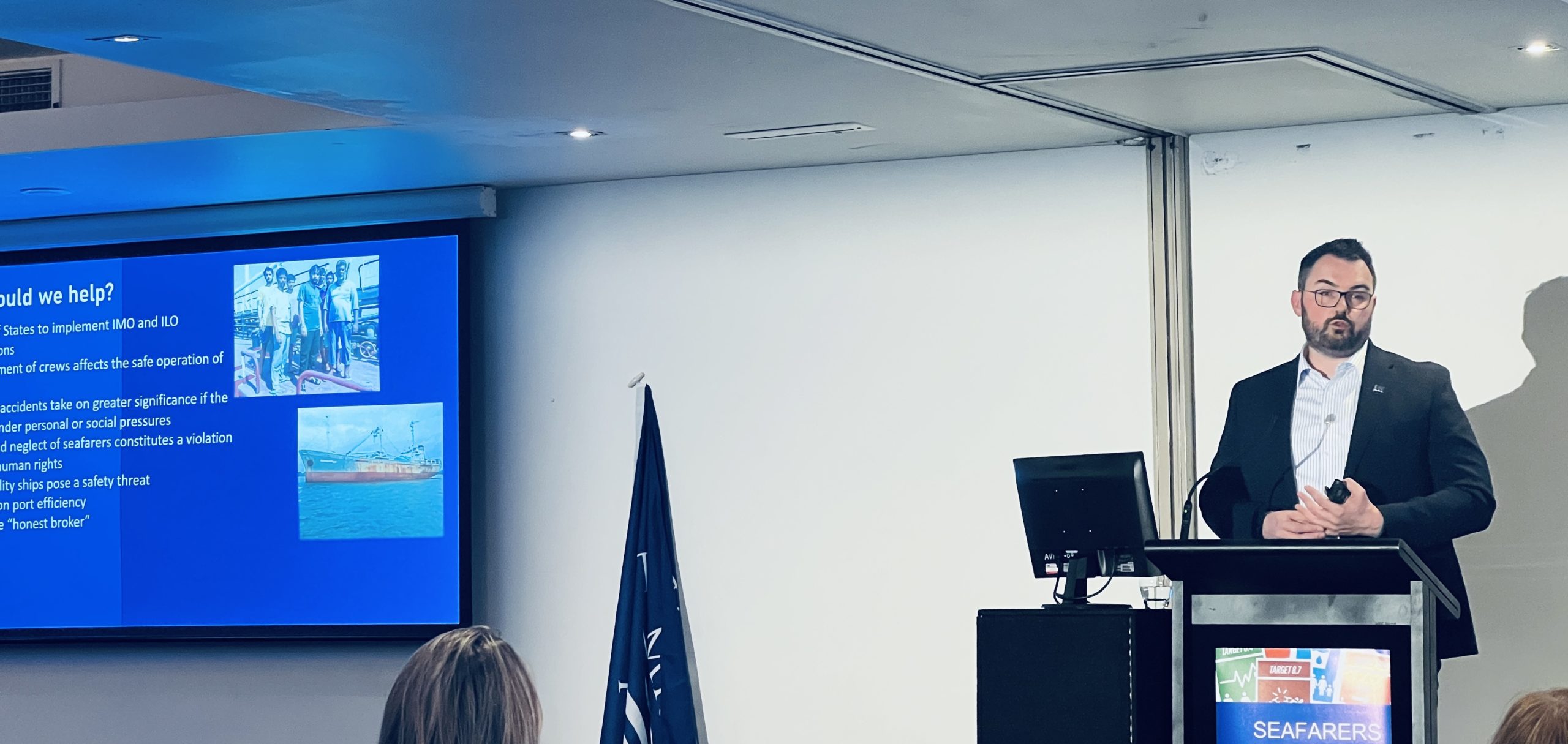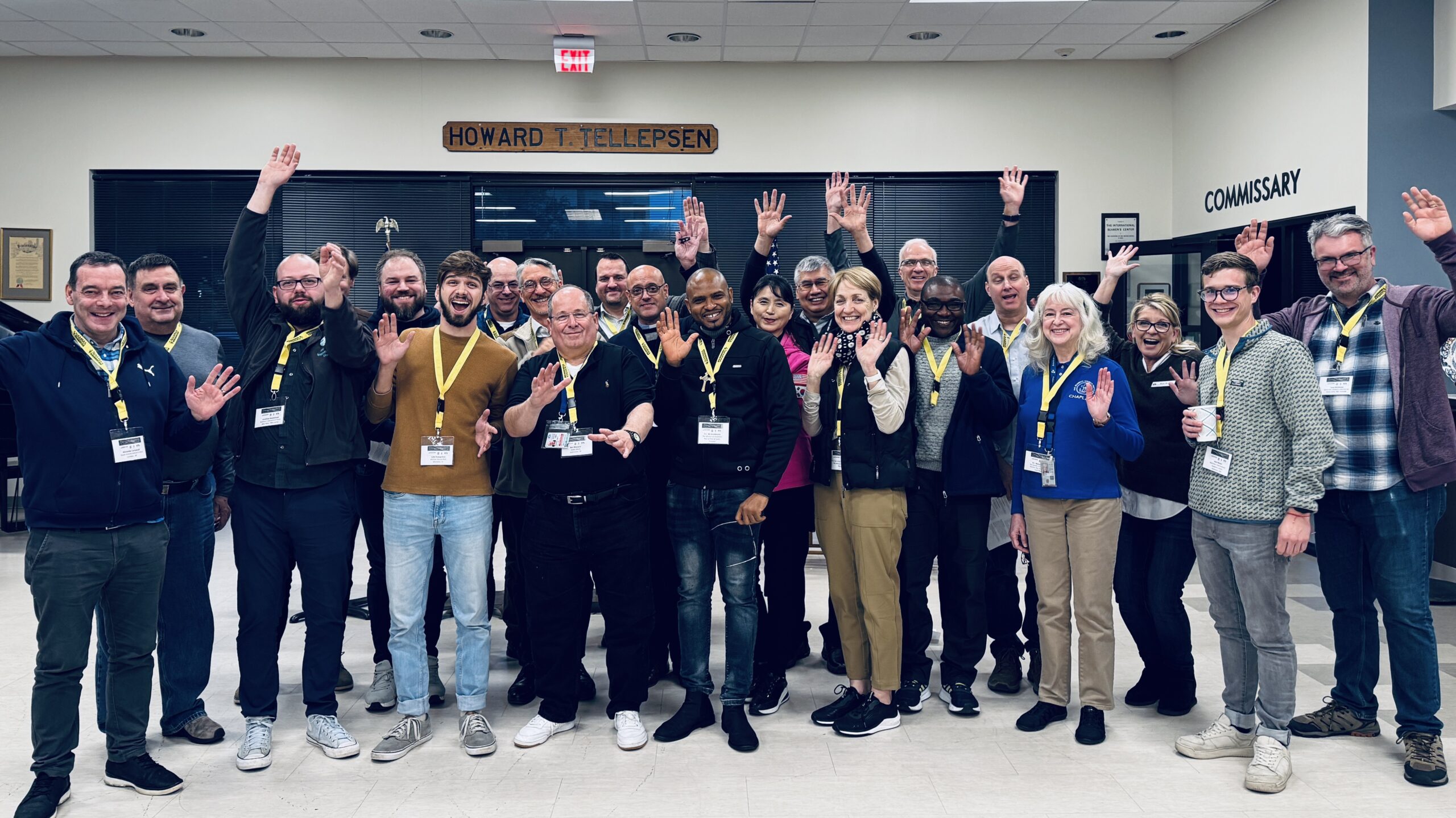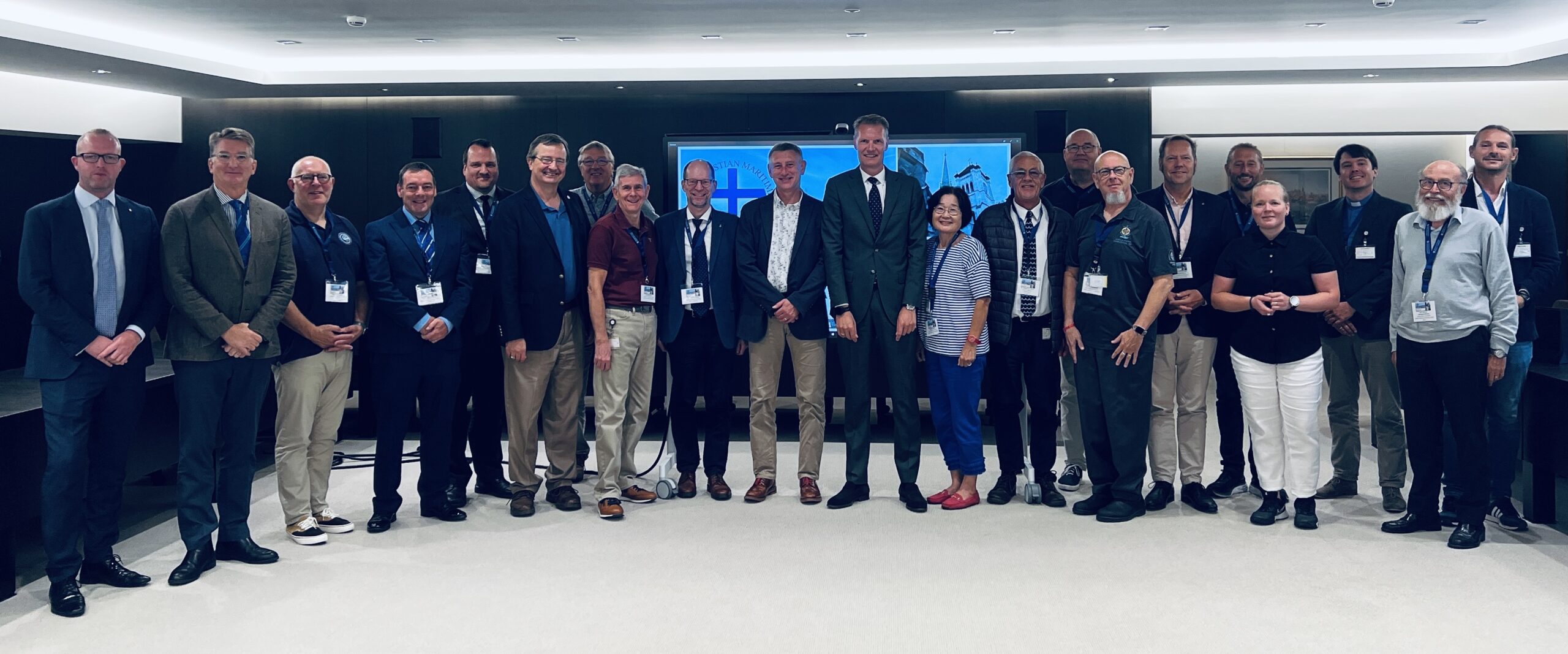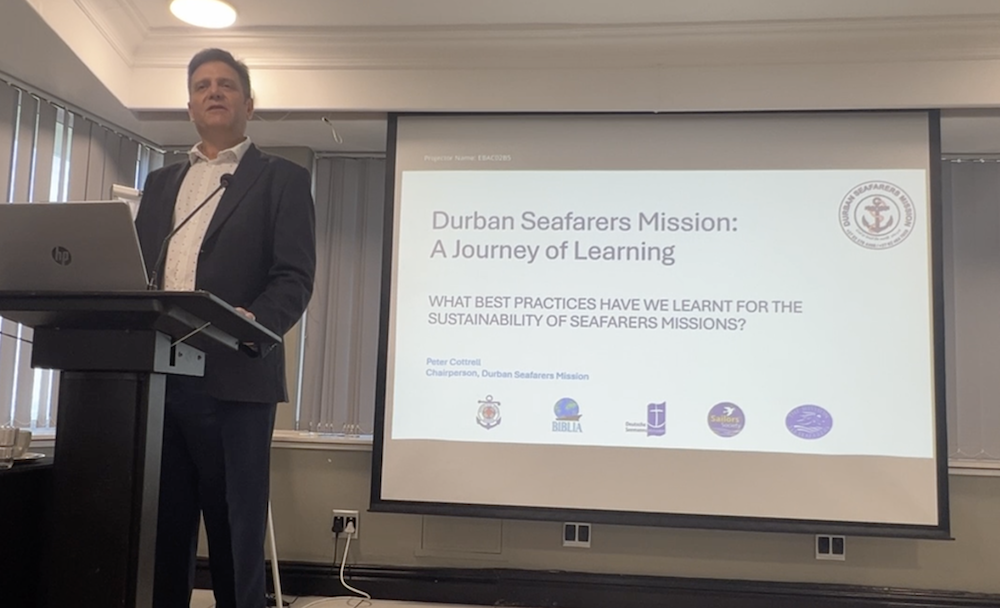Fremantle, WA – At the Mission to Seafarers Australia Regional Conference on July 16, Ben Bailey, Director of Programme at the Mission to Seafarers International Headquarters, delivered an impactful presentation on global justice and welfare initiatives for seafarers. His address highlighted the multifaceted efforts of the Mission to Seafarers (MTS) in addressing the challenges faced by seafarers worldwide through various programs and advocacy.
Bailey introduced the various “JAWS” initiatives, which stands for Justice and Welfare for Seafarers. He detailed how MTS’ JAWS programs addresses crucial issues such as shore leave, wages, repatriation, health, bullying, and harassment. Local teams tackle welfare issues, while justice-related cases are escalated to competent authorities, including flag states and local authorities.
Reflecting on the past few years, Bailey noted that from 2020 to 2022, MTS managed an average of 1,340 cases annually, many stemming from the COVID-19 pandemic’s shore leave crisis and the impact of geopolitical events such as the war in Ukraine and the Ever Given incident. In 2023, cases dropped to 716, attributed to improved shore leave conditions. However, Bailey raised concerns about “black pockets,” areas where agents exploit seafarers by demanding exorbitant fees for shore leave.
Bailey emphasized the critical role of seafarers’ welfare groups in reporting major issues, pointing out, as an example, that many COVID-19 protocols preventing shore leave still in place are due to human error, with companies forgetting to update regulations. MTS’s ongoing work includes recuperating wages owed to seafarers, often in collaboration with the International Transport Workers’ Federation (ITF), and addressing mental health concerns through initiatives like the Safetalk marine course, which focuses on suicide awareness.
Bailey also addressed the rising number of deaths at sea, highlighting that MTS now hears of 2-3 deaths per month in ports worldwide. He underscored the importance of mental health training and the provision of resources to seafarers to enhance their wellbeing.
In his presentation, Bailey tackled the question of why organizations like MTS are essential when governments, unions, and competent authorities are supposed to handle justice and welfare issues. He asserted that MTS doesn’t litigate for seafarers but stands alongside them as a “living embodiment of service and faith in action.”
Bailey announced that MTS had taken over the ‘Ship Visitor’ application, a vital monitoring and evaluation tool. This app, previously managed by Sailors’ Society, helps MTS track ship visits globally, enhancing data collection and support services. He called for better communication and data sharing among missions and regions to bolster global advocacy efforts.
The Red Sea region remains a significant concern, with over 130 attacks reported and a 50% increase in calls to the MTS crew helpline from seafarers and their families. Bailey highlighted the urgent need for mental health programs and resources to support those affected by these incidents.
Discussing the ongoing war in Ukraine, Bailey described the critical support provided to seafarers, including financial aid, mental health training, and emergency assistance. MTS collaborates with local unions like MORTRANS to deliver food packages, emergency accommodation, and cover funeral costs.
Bailey concluded by reaffirming the importance of MTS’s work in continuing the tradition of advocating for social justice, as started by John Ashley. He emphasized the need for comprehensive CISM (Critical Incident Stress Management) training and the role of the Seafarers Happiness Index as a barometer of social change. Bailey urged industry stakeholders to support these initiatives and recognize the vital contributions of seafarers.
“Our work is needed now more than ever,” Bailey stated, urging the industry to understand the immense support provided by MTS and the importance of continuous advocacy for seafarers’ rights and welfare.





